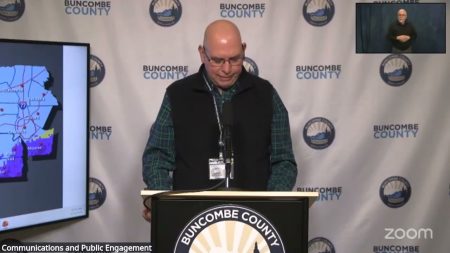Progress Energy invests in North Carolina Offshore Wind Study
Raleigh, NC – Progress Energy Carolinas is partnering with the University of North Carolina at Chapel Hill’s Department of Marine Sciences on a new study to fully map and model North Carolina’s viable offshore wind resources. The study is expected to be the most comprehensive analysis to date on the state’s capability to support electricity generation from offshore wind energy.
“We believe that renewable energy resources play an important role in a balanced approach to addressing the challenges of growing energy demand and global climate change,” said Lloyd Yates, president and CEO of Progress Energy Carolinas. “The data gathered by this study will help utility, state and local decision makers determine how best to pursue offshore wind power while still providing cost-effective and reliable electricity to customers.”
The three-year research study will measure wind speeds in areas for
which there is currently no data, create a refined wind resource map,
and develop an atmospheric modeling system to enable improved wind
forecasting capabilities. It does not include the installation of
utility-scale wind turbines.
Progress Energy is investing $300,000 of research and development
funding in this project, matching $300,000 in federal American Recovery
and Reinvestment Act funding administered by the N.C. Energy Office in
the N.C. Department of Commerce. The total cost of the study is expected
to be around $1 million, and the remaining funds will come from federal
grants and other private sponsors. Harvey Seim, a professor in UNC’s
Department of Marine Sciences, will lead the university’s involvement in
the study.
“We are grateful for Progress Energy’s interest in supporting the
offshore wind assessment. The support they are providing is critical to
enabling us to utilize the state support to its fullest capacity,” Seim
said.
An initial coastal wind study, completed by UNC in 2009, indicated a
large potential exists for offshore wind power based on observed wind
speeds and the large areas of shallow water that could be developed.
However, the initial study, which Seim co-led, was constrained due to a
small number of historical wind observations and an inadequate ability
to model wind profiles over water.
The second-phase study will address these constraints and provide a
better representation of the offshore wind resource that will allow the
most efficient and responsible development of utility-scale wind power
generation.
Potential utility-scale wind energy opportunities in North Carolina are
limited to the mountain ridges in the western part of the state and off
the Atlantic coast. Both of these locations face significant challenges
to development, including costs, accessibility to remote locations, and
existing laws intended to protect against development.
Progress Energy Carolinas has signed contracts for almost 50 megawatts
of renewable energy since 2007 and is on track to meet the 2012
requirements of the N.C. renewable energy portfolio standard. For more
information on the company’s renewable energy projects, please visit:
www.progress-energy.com/environment.








